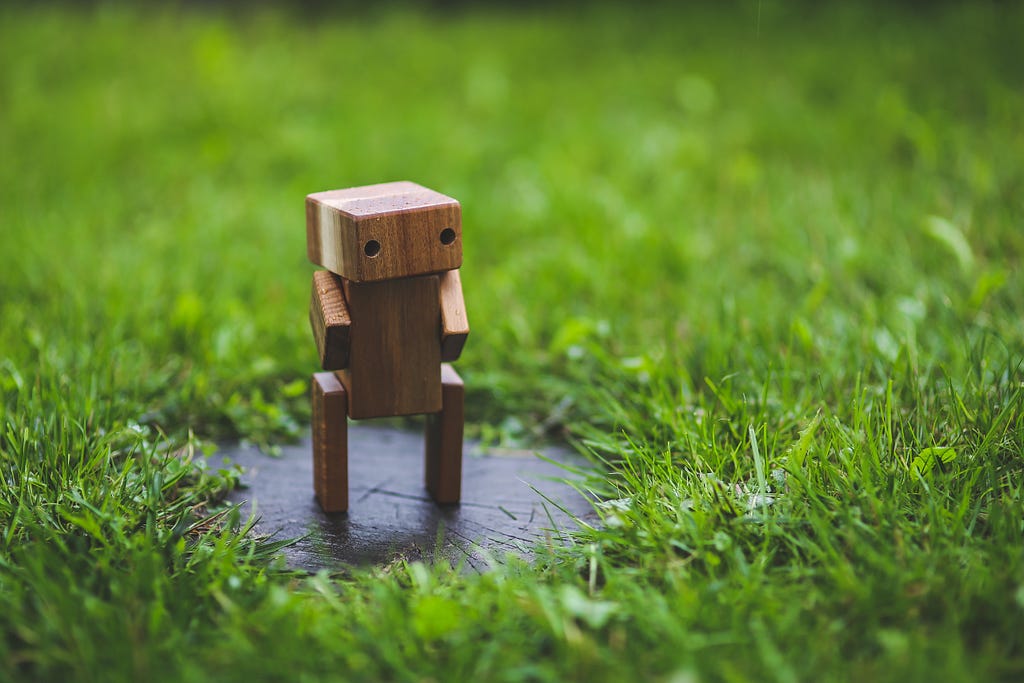Latest news about Bitcoin and all cryptocurrencies. Your daily crypto news habit.

Most people probably already had this experience: you go to the site of a company, you type your question into a chat field and when you are answered you are left wondering whether a human or bot responded.
This confusion lies at the base of the difference between live chat and automated chat. Live chat has an actual person behind the keyboard answering the questions of potential customers. Automated chat has no human in between, a chatbot answers inquiries by customers and leads.
This difference is thus not simply an issue of wording, but is key in orienting your businesses’ approach to chat and your entire customer-facing strategy.
Live chat and automated chat can be combined for a successful customer engagement strategy, however automated chat will take over many of the tasks now done by humans. Below we lay out the reasons why.
Live chat will not disappear, humans like a human touch
Live chat is chat controlled by a human. A customer service rep or member of the sales team is on the other side of the chat window here, and is answering questions from customers or leads.
Having some direct, human contact is still key for many customers in making decisions. A study from Forrester even found that:
“44% of online consumers say that having questions answered by a live person while in the middle of an online purchase is one of the most important features a website can offer”
Essentially it is a great tool in the toolkit of employees working to support customers and leads. It gives them a direct link that is convenient and relatable for consumers for whom call centers or email conversations are not natural.
Chatbots are faster and do not sleep
Nevertheless humans are getting increasingly outclassed by their automated counterparts. Chatbots are applications running on a computer that can talk to 100, a 1.000 or even a 100.000 customers at the same time (depending on server capacity). A bot does not work in a call center, but on a server. This all opens up a whole new array of services, and a whole new way of looking at serving customers.
This means chatbots can work 24 hours per day, and can answer customers without any delay, physically impossible for a human worker.
At a time when customers are getting more and more demanding, getting your customers an immediate response at any time of the day is a key competitive advantage for any business.
Automated chat is the future of mass personalisation
A bot can furthermore remember customers at any scale and personalise interactions with them. It can automatically track each customer, and help them in the most efficient way. Furthermore, data analysis and machine learning can be applied to chat conversations, and will allow companies to customise and adapt customer journeys.
In this way chatbots offer the personalisation and service usually only reserved for elite customers to anyone and at a mass scale. Kemal El Moujahid, lead product manager of Facebook Messenger, summarises it as:
“The promise of chatbots is personalization at scale”
Chatbots increase human productivity
Chatbots can furthermore free up human workers for more productive tasks. By taking up large amounts of simple interactions, bots free up humans for more complex tasks like closing sales, delivering high-touch customer support or solving difficult problems.
In this way bots will dramatically improve the productivity of existing customer service and sales workers. Using our Faqbot SaaS platform, for example, we currently are able to resolve 20–40% of inbound tickets automatically. Before Faqbot these tickets would have needed to be answered by actual workers.
Bots are the key to self-service customer support
Bots allow a new, self-service view of customer service to flourish. A new generation of digital natives are more used to looking things up online and solving problems themselves. A study of more than a 1.000 U.S. citizens aged 18–65 found that nearly three out of every four millenials prefer to solve customer service issues by themselves.
They want to immediately have their questions engaged with on the (often chat) platforms they are already on, and chatbots are ideal for this new environment.
Or as an IBM study found:
“Tech-savvy Millennials prefer to solve their own customer service issues, turning to self-service solutions including FAQs, forums and online chat or bot services. With the next generation expected to be even more self-reliant, automated customer service technologies will be crucial in responding to these human-free, digital-only interactions.”
— —
Want to get into automated chat?
Faqbot helps businesses take up inbound customer support requests by serving automated responses in real-time to customers.
Faqbot is now offering a 14-day free trial and has integrations with most popular live chat services such as Intercom or Zendesk Chat (formerly Zopim).
Need a reminder why automated chat will win?
- Bots always answer in seconds
- Bots do not sleep
- Bots allow for mass-personalisation
- Bots make your human workers more productive
- Bots give you the tools to develop self-service customer support
Automated chat versus live chat was originally published in Hacker Noon on Medium, where people are continuing the conversation by highlighting and responding to this story.
Disclaimer
The views and opinions expressed in this article are solely those of the authors and do not reflect the views of Bitcoin Insider. Every investment and trading move involves risk - this is especially true for cryptocurrencies given their volatility. We strongly advise our readers to conduct their own research when making a decision.